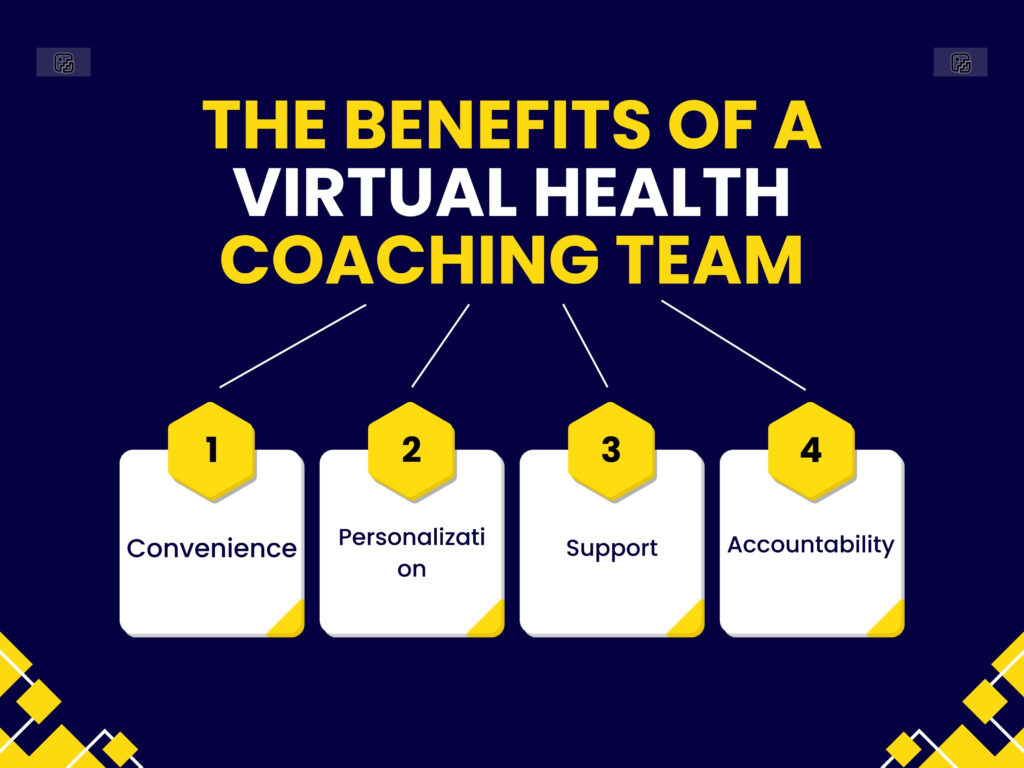Introduction
Corporate wellness solutions have become a cornerstone of modern workplace strategies aimed at enhancing the overall health and productivity of employees. These programs encompass a range of initiatives designed to promote physical, mental, and emotional well-being within the organizational setting. In today’s competitive business landscape, prioritizing employee wellness isn’t just a perk—it’s a strategic imperative that can significantly impact an organization’s bottom line and employee satisfaction.
What Are Corporate Wellness Solutions?
Corporate wellness solutions refer to comprehensive programs and policies implemented by organizations to support the health and well-being of their workforce. These initiatives typically include health assessments, fitness programs, mental health support, nutritional guidance, flexible work arrangements, financial wellness programs, and ergonomic workspaces.
Avidon Health’s corporate wellness solutions are tailored to support total employee well-being—physical, mental, financial, and emotional. Our evidence-based programs and expert coaches help reduce health risks, drive engagement, and elevate performance across every part of your organization.
The Importance of Corporate Wellness
Investing in corporate wellness isn’t just about altruism; it’s a proven strategy to drive business success. Organizations that prioritize employee well-being experience lower healthcare costs, reduced absenteeism, increased productivity, and higher employee retention rates. By fostering a healthy workplace culture, companies can create a positive environment where employees thrive and contribute more effectively to organizational goals.
Understanding Corporate Wellness Solutions
Comprehensive Health Assessments
Health Risk Appraisals
One of the foundational components of corporate wellness programs is conducting health risk appraisals. These assessments evaluate employees’ current health status, identify potential risks, and provide insights into prevalent health issues within the workforce. By partnering with health professionals, such as those from Avidon Health, organizations can implement thorough health risk appraisals that inform personalized wellness interventions.
Biometric Screenings
Biometric screenings, another crucial aspect of health assessments, measure vital health indicators like blood pressure, cholesterol levels, and BMI. These screenings help in early detection of health problems, enabling timely interventions and preventive measures. Avidon Health offers comprehensive biometric screening services that provide accurate health data to guide corporate wellness initiatives effectively.
Customized Fitness Programs
On-site Gym Facilities
Offering on-site gym facilities is a proactive step toward promoting physical activity among employees. Avidon Health specializes in designing and implementing tailored fitness programs that include access to state-of-the-art gym equipment within the workplace. This encourages employees to incorporate regular exercise into their daily routines, leading to improved fitness levels and overall health.
Virtual Fitness Challenges
Incorporating virtual fitness challenges adds a dynamic and competitive element to corporate wellness programs. Avidon Health’s virtual fitness challenges leverage technology to engage employees across different locations, fostering camaraderie and motivation. These challenges can range from step competitions to group fitness classes accessible online, accommodating diverse employee preferences and schedules.
Mental Health Support
Counseling Services
Recognizing the importance of mental well-being, corporate wellness programs often include access to professional counseling services. Avidon Health offers confidential counseling sessions tailored to address stress, anxiety, and other mental health issues affecting employees. By providing emotional support and coping strategies, organizations can cultivate a supportive work environment conducive to mental resilience and productivity.
Mindfulness Training
Mindfulness training has gained prominence as a valuable tool for stress management and mental clarity in the workplace. Avidon Health’s mindfulness programs teach employees techniques to enhance focus, reduce stress levels, and improve overall well-being. Incorporating mindfulness into corporate culture promotes emotional balance and enhances employees’ ability to handle work-related challenges effectively.
Key Components of an Effective Corporate Wellness Program
Corporate wellness programs encompass a variety of components aimed at promoting holistic employee health and well-being. These include:
Nutritional Guidance
Dietitian Consultations
Avidon Health offers personalized dietitian consultations to educate employees about healthy eating habits and nutrition. These consultations help individuals make informed food choices that support overall health and energy levels, contributing to long-term wellness goals within the workplace.
Healthy Cooking Classes
Organizing healthy cooking classes further reinforces nutritional education by teaching employees practical cooking skills and recipes. Avidon Health’s culinary experts guide participants in preparing nutritious meals that are delicious and easy to incorporate into their daily lives.
Flexible Work Arrangements
Remote Work Options
Flexible work arrangements, such as remote work options facilitated by Avidon Health’s telehealth services, allow employees to achieve a better work-life balance. Remote work reduces commuting stress, increases productivity, and accommodates diverse personal schedules, thereby enhancing overall job satisfaction and well-being.
Flexible Hours
Flexible work hours enable employees to customize their work schedules according to personal commitments and peak productivity times. Avidon Health supports organizations in implementing flexible hour policies that prioritize work efficiency while accommodating individual preferences and responsibilities.
Financial Wellness Programs
Financial Education Workshops
Educational workshops on financial planning and management empower employees to make informed decisions about their financial well-being. Avidon Health’s financial experts provide practical advice on budgeting, saving, and investing, promoting financial stability and reducing stress related to money management.
Retirement Planning
Supporting retirement planning is integral to comprehensive corporate wellness programs. Avidon Health can help you seamlessly leverage the leading providers of retirement planning seminars that guide employees in preparing for their future financial security, fostering peace of mind and long-term financial health.
Incentive-Based Wellness Challenges
Step Challenges
Step challenges encourage physical activity by setting collective goals for employees to achieve a certain number of steps daily or weekly. Avidon Health’s step challenge programs incorporate motivational incentives and progress-tracking tools to enhance engagement and promote healthy habits.
Weight Loss Competitions
Weight loss competitions provide a supportive framework for employees striving to achieve their fitness goals. Avidon Health designs weight loss programs that combine nutritional guidance, fitness coaching, and peer support to facilitate sustainable weight management and improved overall health.
Ergonomic Workspaces
Adjustable Chairs
Ergonomic workstations featuring adjustable chairs support optimal posture and reduce the risk of musculoskeletal injuries. Avidon Health advises on ergonomic office design and provides ergonomic assessments to ensure employees’ comfort and productivity while minimizing workplace-related health issues.
Sit-Stand Desks
Sit-stand desks promote movement and alleviate prolonged sitting, a common contributor to health problems like back pain and poor circulation. Avidon Health integrates sit-stand desks into workplace environments, encouraging alternating between sitting and standing throughout the day for enhanced physical well-being.
How to Implementing a Corporate Wellness Program
Corporate wellness programs are instrumental in fostering a healthy and productive workplace environment. By implementing comprehensive strategies that address physical, mental, and emotional well-being, organizations can enhance employee satisfaction, reduce healthcare costs, and improve overall productivity. This article explores key components of corporate wellness programs and outlines effective implementation strategies.
Health Education and Workshops
Health education and workshops play a crucial role in promoting wellness awareness and empowering employees to make informed health decisions.
Stress Management
Stress management workshops or behavior change courses equip employees with techniques to recognize and manage stress effectively. These workshops cover stress reduction strategies such as mindfulness, relaxation techniques, and time management skills.
Chronic Disease Prevention
Educational sessions on chronic disease prevention focus on lifestyle modifications, early detection, and proactive health management. Avidon Health provides resources and expert advice on preventing diseases like diabetes, hypertension, and cardiovascular conditions through personalized wellness programs.
Community Building Activities
Community-building activities strengthen workplace relationships and enhance team cohesion, contributing to a positive work environment.
Team-Building Events
Organizing team-building events fosters camaraderie and collaboration among employees. Avidon Health supports organizations in planning activities that promote teamwork, communication, and mutual support.
Social Gatherings
Social gatherings provide opportunities for employees to relax and connect outside of work tasks. Avidon Health encourages social interactions through organized events that promote a sense of belonging and well-being.
Leveraging Technology for Wellness
Technology plays a pivotal role in modern corporate wellness programs, offering innovative solutions to promote health and track progress.
Health Apps
Mobile health apps recommended by Avidon Health facilitate easy access to wellness resources, including fitness routines, nutritional guidance, and mental health support. These apps enable employees to monitor their health goals and receive personalized recommendations conveniently.
Wearable Fitness Trackers
Integrating wearable fitness trackers allows employees to track physical activity levels, sleep patterns, and overall fitness metrics. Avidon Health incorporates wearable technology into wellness programs to encourage active lifestyles and provide real-time feedback on health behaviors.
Measuring the Impact of Wellness Programs
Evaluating the effectiveness of corporate wellness initiatives is essential for continuous improvement and demonstrating return on investment.
Employee Feedback and Surveys
Collecting feedback through surveys helps gauge employee satisfaction with wellness programs and identifies areas for enhancement. Avidon Health conducts regular surveys to assess program satisfaction and gather insights for program refinement.
Health Metrics and Analytics
Analyzing health metrics such as absenteeism rates, healthcare claims, and biometric data provides quantitative evidence of the impact of wellness programs. Avidon Health utilizes analytics to measure improvements in employee health outcomes and organizational performance.
Conclusion
Corporate wellness programs are essential for promoting employee well-being, enhancing productivity, and reducing healthcare costs. By implementing comprehensive strategies and leveraging resources like Avidon Health, organizations can create a supportive environment that benefits both employees and the company as a whole. Investing in corporate wellness is not just about health—it’s a strategic decision that contributes to a positive work culture and sustainable business success.
FAQs
Corporate wellness coaching is a professional service that supports employees in building healthier habits through expert guidance, education, and personalized behavior change strategies.
They reduce healthcare costs, improve productivity, enhance employee retention, and foster a positive, engaged workplace culture.
Preventive care initiatives, virtual coaching, digital platforms, and lifestyle-based programs offer high impact at lower costs—especially when tailored to your workforce needs.
Start with low-cost options like health education, flexible schedules, and community partnerships. Platforms like Avidon Health offer scalable, plug-and-play solutions for SMBs.
Leaders are critical—they set the tone, allocate resources, lead by example, and help normalize well-being as part of company culture.
Technology expands access to resources, tracks progress via wearables and apps, drives engagement, and provides actionable data to improve outcomes.
Yes. Research shows returns of $1.50 to $3 for every $1 spent, driven by reduced claims, increased performance, and lower turnover.
Typical offerings include health risk assessments, coaching, mental health support, nutrition education, and physical activity tracking.
Look for providers offering customizable solutions, data-backed outcomes, easy-to-use tech, and coaching programs that align with your culture.









 learning environment.
learning environment.














 Analyzing the cost versus the potential return on investment is necessary to justify the adoption of new technologies within health coaching teams.
Analyzing the cost versus the potential return on investment is necessary to justify the adoption of new technologies within health coaching teams.